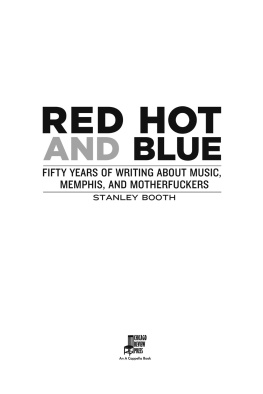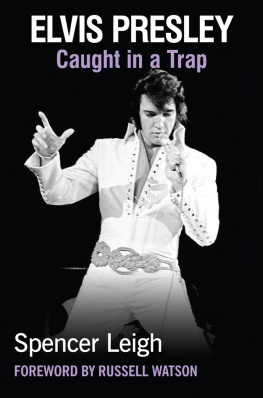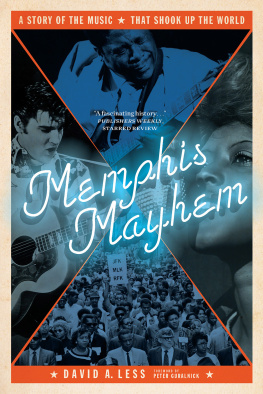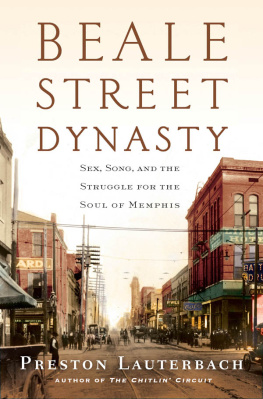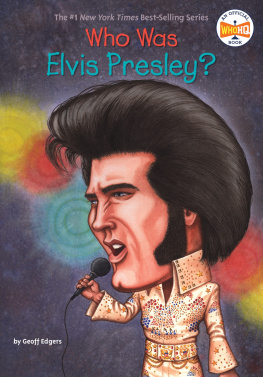Sommaire
Pagination de ldition papier
Guide
Copyright 2019 by Stanley Booth
All rights reserved
Published by Chicago Review Press Incorporated
814 North Franklin Street
Chicago, Illinois 60610
ISBN 978-1-64160-109-2
Library of Congress Cataloging-in-Publication Data
Names: Booth, Stanley, 1942- author.
Title: Red hot and blue : fifty years of writing about music, Memphis, and
motherfuckers / Stanley Booth.
Description: Chicago, Illinois : Chicago Review Press, [2019] | Includes
bibliographical references and index.
Identifiers: LCCN 2019005126 (print) | LCCN 2019005515 (ebook) | ISBN
9781641601078 (Pdf) | ISBN 9781641601085 (Kindle) | ISBN 9781641601092
(Epub) | ISBN 9781641601061 (trade paper : alk. paper)
Subjects: LCSH: Popular musicSouthern StatesHistory and criticism. |
MusiciansSouthern States.
Classification: LCC ML3477 (ebook) | LCC ML3477 .B65 2019 (print) | DDC
781.6430975dc23
LC record available at https://lccn.loc.gov/2019005126
Cover design: Preston Pisellini
Cover photo: Calvin Newborn at the Flamingo Club of Beale Street,
photo by George Hardin
Interior design: Nord Compo
Printed in the United States of America
5 4 3 2 1
This digital document has been produced by Nord Compo.
For Dewey
BLUES DUES
Underpaid and overprivileged, is how one reporter described his livelihood. Thats how its been with me. While barely surviving, Ive hung out with the most amazing characters. A few years ago, I received in the mail, with increasing urgency, a series of postings that consisted of at least two galley proofs and three letters from a New York literary agent whose client (a regular, probably salaried, contributor to one of the oldest American periodicals, one named after an ocean) had written a history of the blues. My collection of blues- and jazz-related pieces, Rythm Oil, had appeared about four years earlier and, according to the agent, her client liked it a bunch. He wanted my endorsement, desperately, it seemed.
So, finally, I picked up one of the proofs to look it over. I hadnt read far before I came upon these words: The weekend I was in Memphis... Unlike many before him, whod simply bought a lot of blues records, listened to them, and written a book, this writer had made the extra effort of going to the blues museum in Clarksdale, Mississippi, passing through Memphis on his way there, thus becoming an authority. I, who lived in Memphis twenty-five years, going in the course of my research to the city and county jails as a guest more times than I cared to remember, found it hard to restrain myself from hurling the galley all the way back to New York.
They have in Memphis an expression, blues pukes (BP). The blues book author (call him BP1) was just one of many whove crossed my path. They come from everywhere, though California, the American Northeast, Europe, and Japan seem to have more than their share. All BPs seem to suffer from the same delusion. They think they can vicariously absorb some essence that will permit them to interpret the mysteries of the blues. The shallowest BP thinks that he is somehow, by divine right, an arbiter of the authentic. Never happen. But still people persist in such delusions.
Of course, being jealous of the blues is like being jealous of heartburn. The truth is, knowing nothing about the blues is preferable to knowing anything about the blues. Here, however, we run into semantics. Theres the blues, an emotional state, and theres the blues, an art form, or a group of art forms. Believe me, when youre in the Memphis jail, city or county, you got the blues. When youre in your cozy room, listening to Robert Johnsons plaintive tunes, youre hearing the blues. Two different worlds. But some people, people from Berkeley, or Boston, or wherever, are so highly imaginative that they make a leap of funk and become Spokesmen of the Blues. No, really, they make a living this way. People in Dublin, London, Kyoto, Amsterdam, and Lower Slobbovia read them and feel somehow enhanced, enlightened, end manned by the blues.
I never intended to have anything to do with the blues. They came into my life through my bedroom window when I was a child. It wasnt a matter of choice. What I learned, I paid for in experience at the school where they arrest you first and tell you why later.
Heres an attempt to communicate with the genus BP, species television producer (BP2, lets say). It combines a modest amount of truth with an admixture of insincerity, self-promotional hyperbole (I never really knew Annie Mae McDowell all that well), and justifiable distrust.
September 6, 1996
Dear BP2,
Thanks for calling. I enjoyed our chat, and I appreciate your asking for my thoughts on a video series based on the blues. As you can imagine, this idea has come up a number of times in the past. The problem to a man in my position, which is nearly unique (others, among them men like Sam Charters and Paul Oliver and such esteemed friends of mine as Peter Guralnick and Greil Marcus, have written about the blues, but they, superb fellows and decent writers though they surely are, have all seen the blues in at best a secondhand fashion, at a certain remove), is to talk about my knowledge and experience without giving away all I have: my decades-long personal observation of the human reality, the tragic pain and transcendent joy, of the blues and all that word connotes in human life and passion.
Unlike any other writer about the blues, I grew up in a turpentine camp on the edge of the Okefinokee Swamp. A little later, I (and I alone among writers) kept Furry Lewis company as he swept the streets of Memphis. I (alone again) watched Otis Redding write and record Dock of the Bay and other soul classics. Dewey Phillips, the first man to play an Elvis Presley record on the radio, took me, no other writer, to Graceland and Elviss ranch. As a veteran of many Southern campaigns, I have seen fiery crosses and whole black neighborhoods burning. I stood behind Keith Richards and watched Meredith Hunter stabbed to death at Altamont. I am the only living person, writer, or what you will who has been friends with Brian Jones, Sam Phillips, Dewey Phillips, Bukka White, Gram Parsons, Alexis Korner, Ian Stewart, Huey Meaux, Sam the Sham, Alex Chilton, Anita Pallenberg, Keith Richards, Johnny and Eva Woods, Fred and Annie Mae McDowell, Shelby Foote the Civil War historian and his daughter Maggie the stripper, Jerry Wexler, Ahmet Ertegun, James Carr, Al Green, Rufus Thomass whole family, Steve Cropper, Jimi Hendrix, Mike Bloomfield, Phineas and Calvin and Mama Rose Newborn, Chris and Rich Robinson of the Black Crowes, Mississippi John Hurt, B. B. and Albert King. And Charlie Rich and Charlie Freeman and Waylon Jennings. And Little Richard and Duane Allman and Tinsley Ellis. And on and on. Jim Keltner and Charlie Watts. And Joe Venuti and Slim Gaillard and Lash LaRue. This might argue nothing more than an unseemly gregariousness, but you have read my book Rythm Oil, which gives rather more than an inkling of the stories I know and the way I tell them, that is, in effective dramatic scenes.
There are many great, thrilling, exciting stories arising from the blues. Any time someone can manage to pay me to tell one or a few, I am pleased. They all have something to do with slavery and freedom and betrayal and hatred and love and loss and death. Some people say the worried blues aint tough, Furry used to sing. I declare if they dont kill you, theyll handle you mighty rough. The stories are many, waiting to be told. But if I tell them in letters, not only will the letters be perhaps rather long, then everybody will know my stories, and I will have to go to work for a living, a fate I am determined to avoid, cost what it may.

